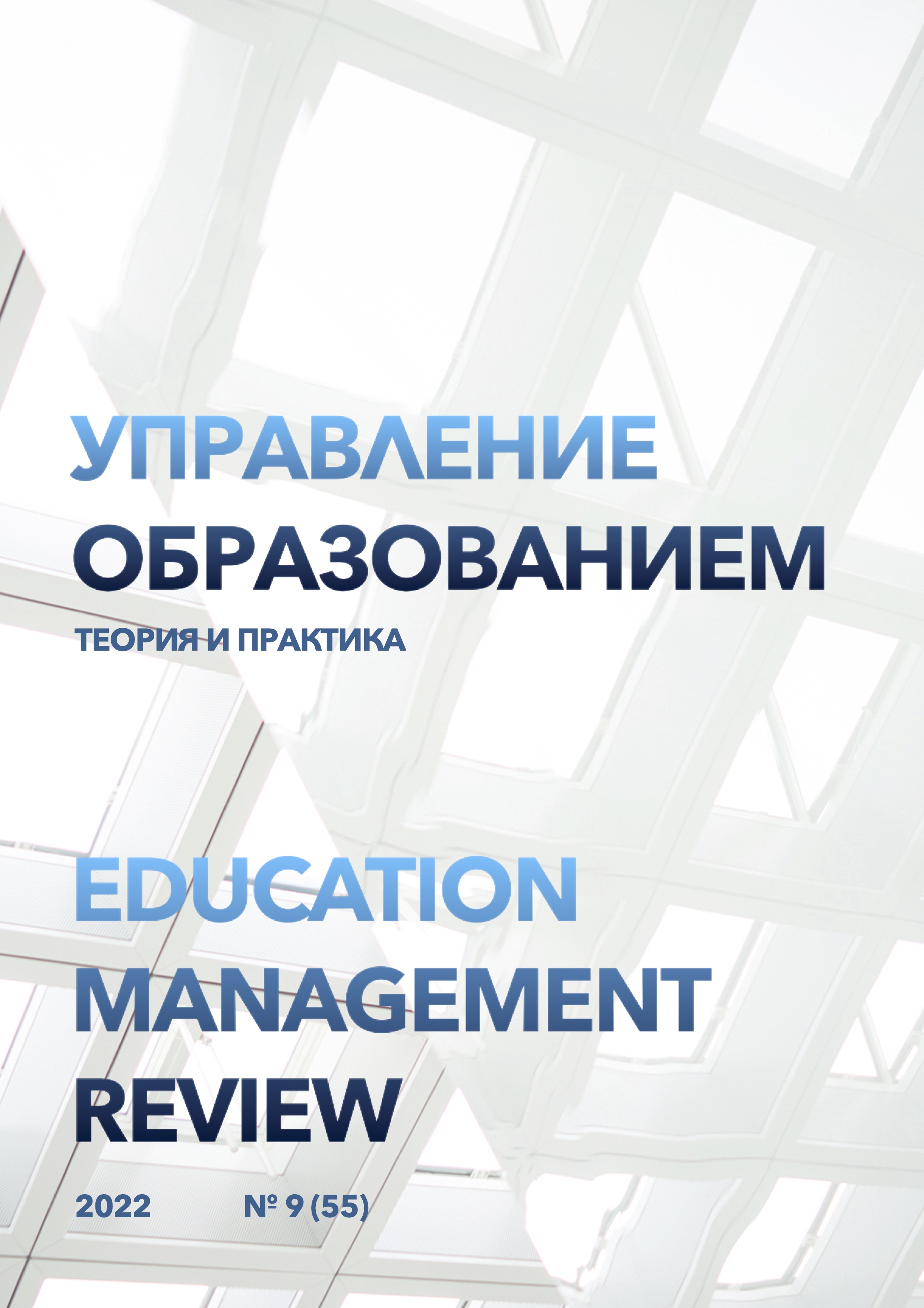Higher education reforms and problems of their implementation in Russia
DOI:
https://doi.org/10.25726/m0621-9896-5727-dKeywords:
reforms, education, management, university, researchAbstract
The economic success of developed countries, as practice shows, is achieved through the development of education and scientific research, which are quickly mastered. Education of people can be considered as an effective factor of economic growth. At the same time, it is the most important component of human capital, which accumulates in society and becomes the main economic resource. However, state support is needed for its long-term development. The experience of providing state support and developing education in advanced countries of the world can be useful for Russia, which needs to reform the education system and build an innovative economy. But here it is necessary to clearly imagine the problems that will arise in this case and find ways to solve them. In the post-industrial knowledge economy is education and human capital, which serve as accelerators in the creation of new technologies, increasing the efficiency of production, the development of human society in a variety of areas. Education becomes the foundation on which the modern economy is built. The publications note that understanding the importance of getting a quality education by every person is now becoming especially important for the whole society. Therefore, in the leading countries of the world economy, everything is being done to ensure that human capital is accumulated and effectively used for the benefit of economic development. Russia is currently undergoing reforms in the field of education. However, as with almost any reform, there are also many problems that will have to be solved one way or another. At the same time, it should be noted that some very important problems have not yet been properly reflected in publications.
References
Байсаева М.У., Арсамакова М.В., Байсаев З.И. Проблемы формирования и эффективного использования финансовых ресурсов органов местного самоуправления: опыт организаций управления образованием // Управление образованием: теория и практика. 2021. № 4. С. 265–273. https://doi.org/10.25726/p9648-5309-8680-k
Ван Ц., Кумехов К.К., Сурова Н.Ю. Конкуренция на высшее образование - обратная сторона накопления человеческого капитала в Китае // Вестник Академии. 2019. № 3. С. 101-110.
Вольчик В.В., Маслюкова Е.В. Ловушка метрик, или Почему недооценивается неявное знание в процессе регулирования сферы образования и науки // Journal of institutional studies. 2018. Т. 10. № 3. С. 158-179.
Гурулева Т.Л. Результаты выполнения программы реформы образования в Китае и задачи развития образования до 2022 года. Китайское государство на заключительном этапе построения «среднезажиточного общества»: материалы ежегодной научной конференции Центра политических исследований и прогнозов ИДВ РАН. Москва, 23-24 марта 2020 г. М.: Изд-во ИДВ РАН. С. 81-92.
Донецкая С.С. Высшее образование в Китае: особенности системы управления в ведущих вузах страны // Вестник Российского университета дружбы народов. Сер. Социология. 2022. Т. 22. № 1. С. 150-167.
Клячко Т.А., Семионова Е.А. Вклад образования в социально-экономическое развитие регионов России // Экономика региона. 2018. Т. 14. №3, С. 791-805.
Ковальчук М.В. Наука и жизнь: моя конвергенция. Том Автобиографические наброски. Научно-популярные и концептуальные статьи. М.: ИКЦ Академкнига, 2011. 304 с.
Махаматова С.Т. Смольный институт благородный девиц как модель социализации школьников в образовательный учреждениях закрытого типа // Гуманитарные науки. Вестник Финансового университета. 2021. № 11(1). С. 120-127.
Певзнер М.Н., Петряков П.А., Смертин И.В. Интернационализация высшего образования в условиях новых вызовов //Образование: ресурсы развития. Вестник ЛОИРО. 2020. № 4. С. 17-20.
Приходько Л.В., Каменева Е. . Глобальная конкурентоспособность высшего образования: мировые стратегии и лучшие практики // Гуманитарные науки. Вестник Финансового университета. 2020. Т. 10. № 6. С. 12-18.
Просеков С.А. Особенности образования и воспитания в КНР // Гуманитарные науки. Вестник Финансового университета. 2017. № 7(2). С. 72-81.
Тихонова Э.Н., Полищук Е.А. О проблемах реализации человеческого капитала университетской интеллигенции в регионах России // Сб. статей XVI международ. теор.-методолог. конференции. РГГУ, социо-лог.фак-т. Центр социологических исследований / Под общей ред. Ж.Т. Тощенко. Вып.16. М: РГГУ, 2015. С. 88-92.
Успаева М.Г., Гачаев А.М. Инвестиции в инновационные проекты на базе вузов // Управление образованием: теория и практика. 2021. № 4. С. 250–258. https://doi.org/10.25726/w6210-2850-4745-u




